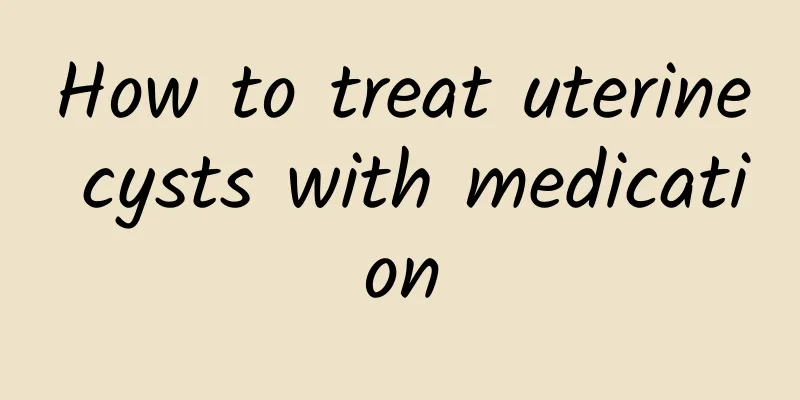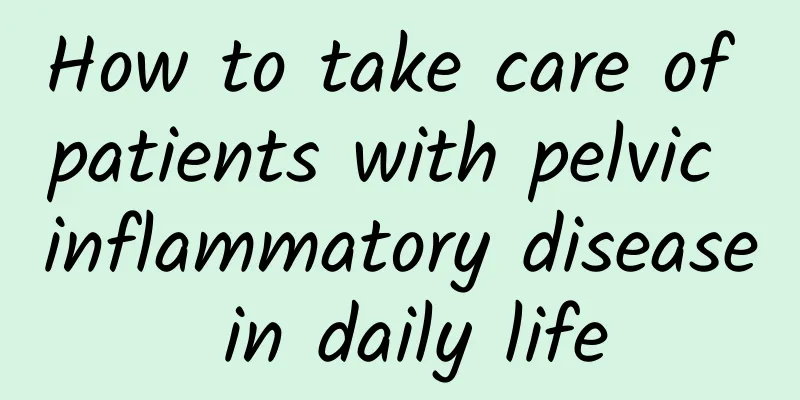How to treat uterine cysts with medication

|
Treatment for uterine cysts depends on the specific situation, and in some cases you may need to see a doctor. Uterine cysts usually refer to endometriosis cysts or other types of cysts, which may be caused by endometriosis, hormone imbalances, or other reasons. Different types of cysts may have different symptoms and effects. For example, some cysts may cause prolonged menstruation, abdominal pain, and even affect pregnancy. For small cysts, your doctor may recommend observation and regular checkups, as many cysts shrink or disappear on their own. In some cases, your doctor may prescribe medications, such as oral contraceptives, to help regulate hormone levels and thus control the growth of the cyst. Surgery, such as laparoscopy, is also an option, especially for larger cysts or those with more noticeable symptoms. It is important to avoid self-medication or ignoring worsening symptoms, and to see a doctor on time. For small cysts, your doctor may recommend observation and regular checkups, as many cysts shrink or disappear on their own. In some cases, your doctor may prescribe medications, such as oral contraceptives, to help regulate hormone levels and thus control the growth of the cyst. Surgery, such as laparoscopy, is also an option, especially for larger cysts or those with more noticeable symptoms. It is important to avoid self-medication or ignoring worsening symptoms, and to see a doctor on time. If you feel uncomfortable or the symptoms worsen, it is recommended that you consult a professional doctor in time. In addition to drug treatment, you should pay attention to your daily life and strengthen your physical fitness. Eat more fiber-rich foods and try to reduce the intake of high-sugar and high-fat foods. Moderate exercise can also help improve body metabolism and help relieve the body's detoxification pressure. It is important to have regular gynecological examinations so that you can keep track of your health status in time and take appropriate preventive and treatment measures. |
<<: Cervical hypertrophy, cervical cyst, pregnancy
>>: Who is prone to Bartholin's gland cyst symptoms and causes
Recommend
What are the symptoms of cervical warts
Nowadays, cervical warts are highly contagious, b...
A brief analysis of surgical treatment methods for uterine fibroids
With the continuous advancement of medical techno...
Experts teach you how to scientifically prevent chronic pelvic inflammatory disease
As a common type of pelvic inflammatory disease, ...
Losing weight is not just about eating less and exercising more. Pressing two acupoints on the palm and back of the hand can help
Many people find that after they start working, t...
Abortion medication knowledge
What should you do if you get pregnant unexpected...
Can pelvic inflammatory disease be transmitted through bed sheets?
Now many people know that pelvic inflammatory dis...
Symptoms of uterine fibroids that may occur in life
Among the many gynecological diseases, uterine fi...
If you want to adjust your physique to be easy to lose weight, start by learning "breathing exercises"!
When you breathe correctly, your deep muscle grou...
Why do steamed buns taste sweeter after exercise?
Last week at two o'clock in the afternoon, I ...
Prevention of mild cervical precancerous lesions
Now many female friends are troubled by a disease...
How to cure frequent dysmenorrhea
Dysmenorrhea is a monthly nightmare for many wome...
Here are some of the causes of third-degree cervical erosion
Third degree cervical erosion is one of the gradi...
Aluminum in food harms reproductive system. Health Department to revise additive standards
In order to protect people's food safety, the...
Are the seasoning ingredients similar? Tips for buying flavorings: three musts and one no
At the end of the year, there are more opportunit...
Briefly introduce some symptoms of acute pelvic inflammatory disease
There are more and more patients with acute pelvi...









